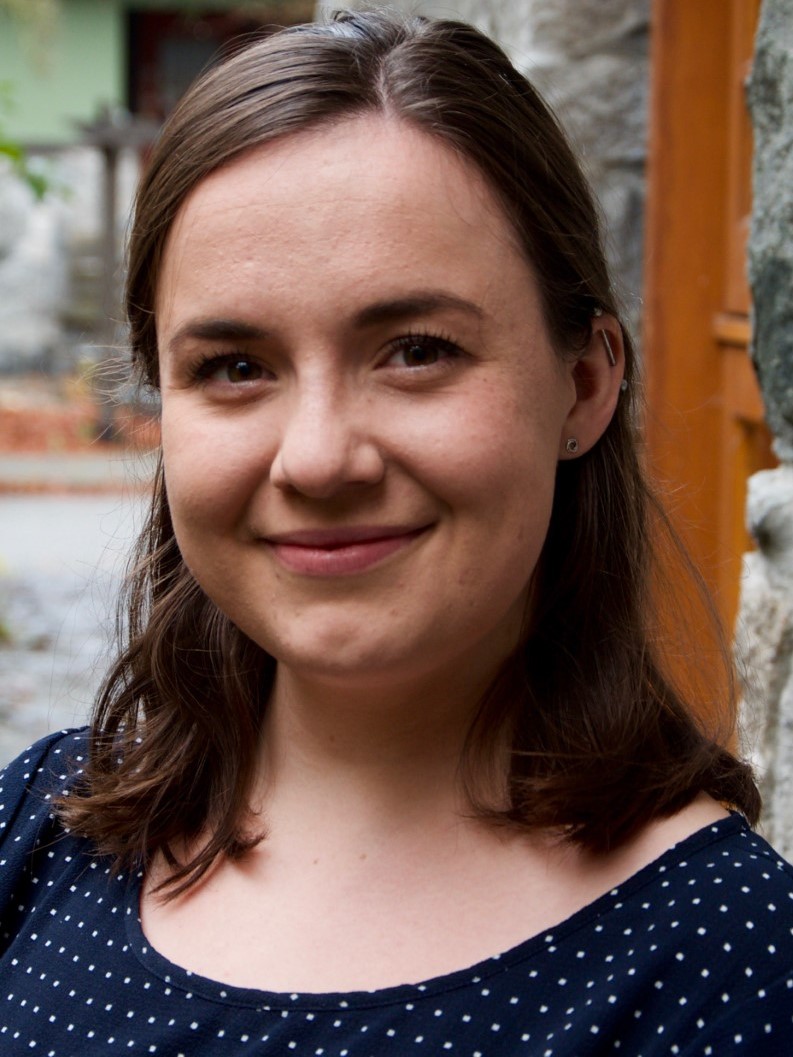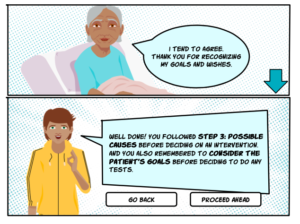When we say the BCCPC supports innovation and education in the palliative approach to care, what comes to mind? Program development – check. Continuing professional education – check. Strategic partnerships – also check. But sometimes supporting innovation and education takes on a more personal look.
The Centre’s Student Training Program aims to help students to gain up-to-date knowledge about the current state of palliative care in BC and acquire hands-on experience and skills in research and knowledge-to-action activities.
This year, the Centre welcomed four graduate/medical students to take on research related projects. Over the next few issues of CentrePoint, we’ll introduce you to them.
Meet Katie Green
As summer 2021 comes to a close, Katie will head into year 2 of medical school at UBC. UBC gives students six weeks at the end of their first year to pursue a project that interests them. For her FLEX project, Katie joined the BC Centre for Palliative Care.
“I have been interested in palliative care for a long time, but had no experience,” says Katie. “I had a friend who had done her FLEX project with BCCPC, and knew it would be a good fit for me. In addition to my interest in palliative care, I was also interested in knowledge translation, so the opportunity to work with (Strategic Initiatives Director) Kathleen Yue was another strong draw.”
Katie’s project was to make core competency modules for health care professionals who are not palliative care specialists. Aimed at nursing, medical, social work, counselling and health care assistant professionals, the modules will offer a basic approach to palliative care symptom management.

Breaking out of the silo
The road to creating the modules was paved with consultation and collaboration.
Katie spearheaded a province-wide survey of health care professionals about how they prefer to learn online, then brought the results back to an interdisciplinary team of colleagues to design and test the module content and design. 
“Working with an interdisciplinary team was such a valuable experience. In med school, you can get very siloed and not have the chance to work closely with other disciplines. Talking to – and learning from – people in other fields was incredibly helpful; both to the project, and to me and my education,” says Katie. “And I got to work with an education designer, who was amazingly creative and had the idea to create discipline-specific modules in a comic book-like format. It was so much fun to work on!”
When asked to reflect on a highlight of the project, Katie doesn’t hesitate. “Working with Kathleen was wonderful. She was a great role model, and I always felt very taken care of. She was genuinely interested in my work, and cared that I was learning throughout the process.”
What’s next?
Katie and Kathleen will be presenting the modules, and the process of creating them, at the upcoming CHPCA conference in October. (See the first one here.)
Katie will continue with the Centre one day per week through the next academic year, since she has elected to use her second year FLEX project allotment with BCCPC as well.
To future med students looking for a FLEX project, Katie has some simple advice: choose something you are really interested in, but give palliative care a chance.
“At first glance, it seems easy to dismiss palliative care because of the old stereotype that it’s depressing, end-of-life care, but it’s just not true! In medical school, we focus on the body; in palliative care, the focus is on the whole person. Palliative care is a magical field where you focus on what’s really important.”
“In palliative care, the focus is on the whole person. Palliative care is a magical field where you focus on what’s really important.”

